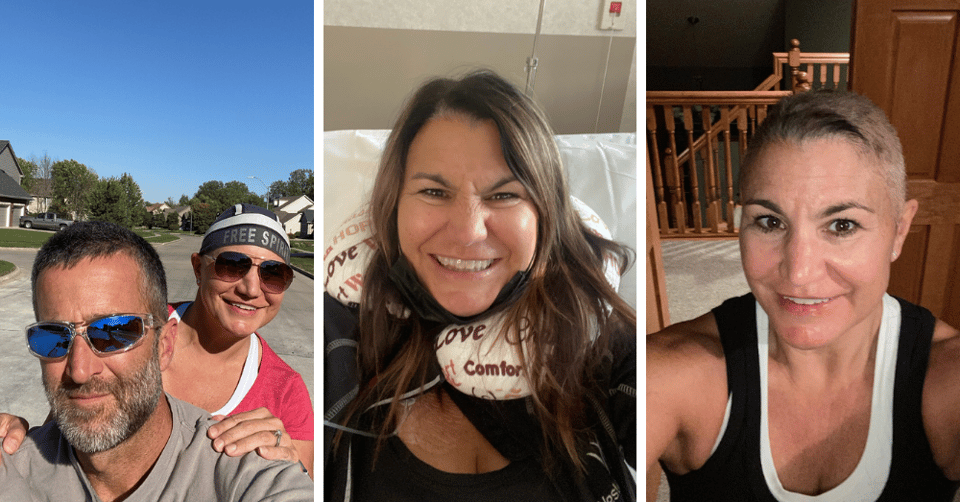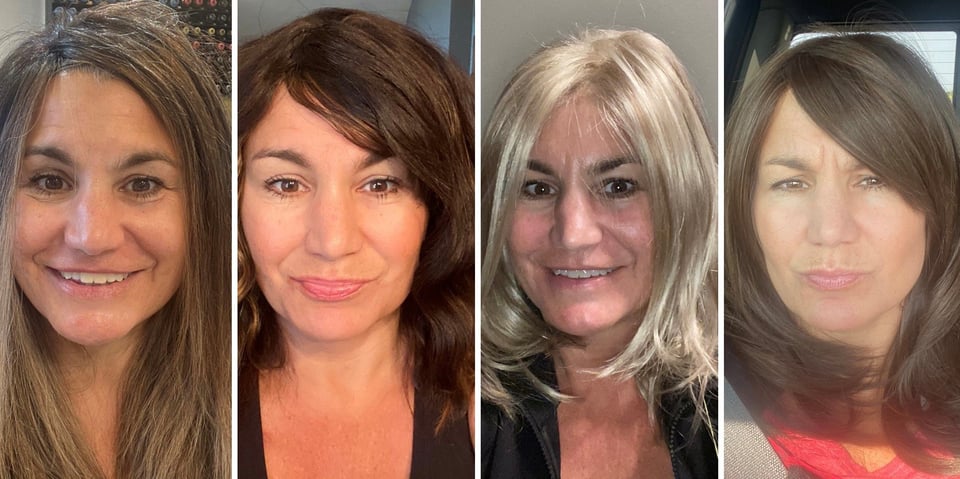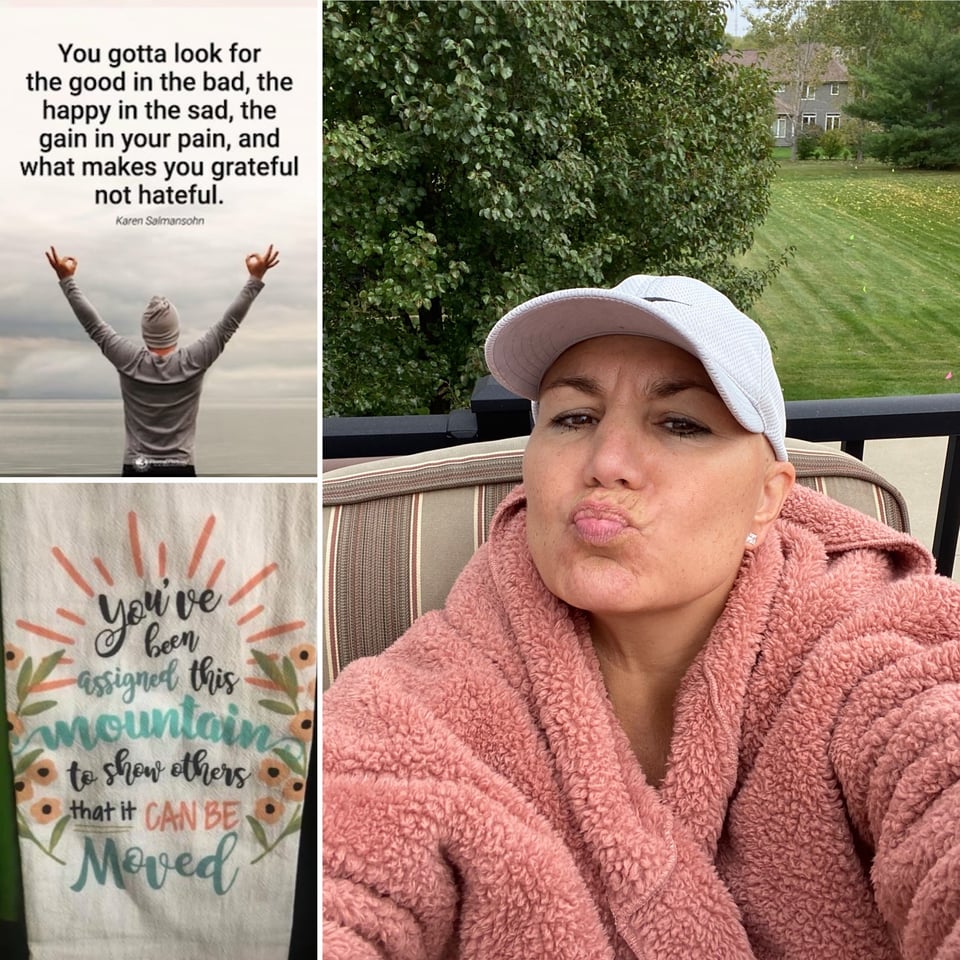During National Breast Cancer Awareness Month, we've featured a different blog post every Wednesday about Janet Simpson and her cancer journey. Janet, Vice President of Network Operations for WesleyLife, was diagnosed in July with an aggressive form of breast cancer and is undergoing chemotherapy in preparation for surgery next year.
As we wrap up our series today, we're focusing on two portions of breast-cancer education: how to do your best to prevent breast cancer -- which affects 1 in 8 women every year -- and steps to take if you're diagnosed.
Part I: Prevention
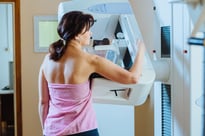 The first line of defense against breast cancer is recommended screenings. The American Cancer Society suggests:
The first line of defense against breast cancer is recommended screenings. The American Cancer Society suggests:
- Women ages 40 to 44 should have the choice to start annual breast cancer screening with mammograms (X-rays of the breast) if they wish to do so.
- Women age 45 to 54 should have mammograms every year.
- Women 55 and older should switch to mammograms every 2 years, or can continue yearly screening.
- Screening should continue as long as a woman is in good health and is expected to live 10 more years or longer.
- All women should be familiar with the known benefits, limitations, and potential harms linked to breast cancer screening.
-
Women should know how their breasts normally look and feel and report any breast changes to a healthcare provider right away. These include not only lumps or thickening, but also changes to the nipple, or to the skin of the breast.
- Some women should be screened with MRIs along with mammograms. These include women who have a family history, genetic tendencies or mutations that can place them at higher risk, or certain other factors. The number of women who fall into this category is actually very small, but it's best to talk with a healthcare provider about your risk for breast cancer and the best screening plan for you.
Other steps to take to help protect your breast health, also courtesy of the American Cancer Society, include:
Being overweight or obese increases breast cancer risk, especially after menopause. Gaining weight as an adult adds to your risk.
 2. Be physically active and avoid time spent sitting.
2. Be physically active and avoid time spent sitting.
Many studies have found that regular physical activity reduces breast cancer risk . Recent updates recommend getting at least 150-300 minutes of moderate-intensity or 75-150 minutes of vigorous-intensity activity each week. Getting to or exceeding 300 minutes is ideal.
3. Follow a healthy eating pattern.
A healthy eating pattern includes a variety of vegetables, fiber-rich beans and peas, fruits in a variety of colors, and whole grains. It is best to avoid or limit red and processed meats, sugar-sweetened beverages, highly processed foods and refined grain products.
4. Avoid or minimize your consumption of alcohol.
Research has shown that drinking any alcohol increases the risk of breast cancer. If you choose to drink alcohol, the American Cancer Society recommends that women have no more than 1 alcoholic beverage on any given day. An alcoholic drink is 12 ounces of regular beer, 5 ounces of wine, or 1.5 ounces of hard liquor.
5. Think carefully about using hormone replacement therapy (HRT).
Studies show that HRT using a combination of estrogen and progestin increases the risk of breast cancer. This combination can also lead to increased breast density, making it harder to find breast cancer on mammogram. The good news is that within three years of stopping hormones, a person's risk reverts to that of a woman who has not used HRT.
Finally, it is important to note that family history is not usually a reliable predictor for breast cancer; most cases are not genetically linked.
Part II: Diagnosis
Say that despite having done all the right things, you're diagnosed with breast cancer anyway. That's Janet's story; an athlete who paid close attention to her health and well-being, she nevertheless received a surprise diagnosis of triple negative breast cancer, an aggressive form for which standard medications often do not work. She is currently about halfway through her first round of chemotherapy with medications that are targeted toward her particular form of cancer, and her prognosis is positive.
If you, like Janet, are surprised with a breast cancer diagnosis, it's safe to say the effects of that news can be life-altering. Here, Janet offers tips for getting though the first minutes, hours, and days of a diagnosis.
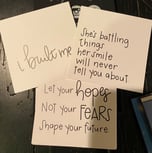 1. When you first get a diagnosis, take a breath. "Nothing you can do is going to change that diagnosis," Janet says. "Also, don’t be surprised if the person telling you that you have cancer can’t tell you a lot else. In my case, it was the radiologist reading the results of a biopsy and ultrasound. All they have is what's in front of them, and they're trained to read it -- and that's all."
1. When you first get a diagnosis, take a breath. "Nothing you can do is going to change that diagnosis," Janet says. "Also, don’t be surprised if the person telling you that you have cancer can’t tell you a lot else. In my case, it was the radiologist reading the results of a biopsy and ultrasound. All they have is what's in front of them, and they're trained to read it -- and that's all."
2. Call -- don't text -- your spouse, significant other, close family member, or trusted friend so that person can offer immediate support. "Then you start to process it all, but for those first few minutes, let someone help you get through the shock and fear."
3. Realize you might have to have to be a little bit patient -- when that's the last thing you feel like being. "My next step was to wait for a call from my obstetrician/gynecologist (OB/GYN) -- the doctor who had ordered the mammogram -- with a referral to a surgeon. They often can't get you in for a couple weeks. You visit with your surgeon, who will talk about recommendations and options for your type of cancer, and he or she will send your results to Oncology to review them. From there, you wait to see your oncologist, who is your cancer specialist. Nothing makes the time pass quickly enough -- and unfortunately, our healthcare system is overwhelmed, so things take time. The oncologist sets the treatment plan based on the kind of cancer you have."
If, like Janet, you are adopted and don't know your family history, or if you have a strong family history of breast or other cancers, your doctor also may recommend you meet with a geneticist to be tested for certain genetic mutations. Those mutations, such as the well-known BRCA1 and BRCA2 as well as about 30 lesser-known variants, carry a high breast-cancer risk. "The testing was coordinated through the hospital and was a simple blood test," Janet says. "Depending on the results -- which of course take a while to come back -- you may find you have additional risks and there are additional decisions to make."
4. Know that all cancers, even breast cancers, are not created equal. "Each case is so different; some people may have a lumpectomy first to remove the tumor, while others, like me, have chemo first to see how the tumor responds to it. Yet others may have chemo and then radiation, or lumpectomy and then radiation. I have found that treatment is very different based on the country you're in, or even the region of the country! In my online support group of 10 people, we all have triple negative breast cancer, but our treatment plans have varied, our recommendations have been different, and our medications and the order they're administered have even been different."
5. Be prepared to self-advocate by asking questions, and no question should be off the table! "We have a great healthcare system in this country, but you still have to advocate for yourself as the patient and understand that the patient experience with a cancer diagnosis isn't always great. You are always going to have more questions." Janet says hers have included everything from whether to take vitamins and supplements to dental work during chemo to when she'll have her next scan to see if her treatment is working.
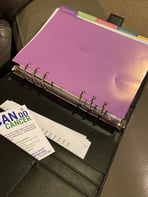 6. Be diligent about tracking symptoms and questions. "A friend gave me a great planner; it has a section for symptoms and is really handy. Through tracking, I found out that I was getting rebound headaches from my nausea medication. I would not have known to ask that if I had not been tracking a headache every single day! I also wouldn't have learned that chemo causes terrible heartburn, or asked for something to help. The nurses along the way can provide a wealth of information, and they have heard and seen many things and are willing to share — but you have to ask. They know some of the best solutions!"
6. Be diligent about tracking symptoms and questions. "A friend gave me a great planner; it has a section for symptoms and is really handy. Through tracking, I found out that I was getting rebound headaches from my nausea medication. I would not have known to ask that if I had not been tracking a headache every single day! I also wouldn't have learned that chemo causes terrible heartburn, or asked for something to help. The nurses along the way can provide a wealth of information, and they have heard and seen many things and are willing to share — but you have to ask. They know some of the best solutions!"
7. Do your research -- but not on Facebook. "Use the Internet to research products and things that help with the symptoms of cancer and the side effects, and then work to understand your specific diagnosis from reliable sources that can be trusted, including accessing research articles if you are able. And don't ever be afraid to ask your doctor to share what he or she knows."
8. Finally, don't be afraid to reach out to people you know -- like Janet! -- who are going through or have been through treatment for cancer. "Can Do Cancer is a support group with a great mentoring program, and most hospitals have support positions to help with all the challenges that come with cancer. Being diagnosed with cancer is not a time to be shy; I guarantee everyone in the 'cancer club' will be willing to share and to answer questions.
"No matter who you are, what kind of cancer you have, or where you are located, there are so many resources that you will never have to face this alone."
The other installments in our Janet series can be found here:
Week 1: "Cancer changes things, but I can still live my life!"
Week 2: Someone you love has cancer: When you don't know what to say
Week 3: "Be grateful for your nose hair."
Week 4: Health, well-being and cancer: caring for yourself during the fight

